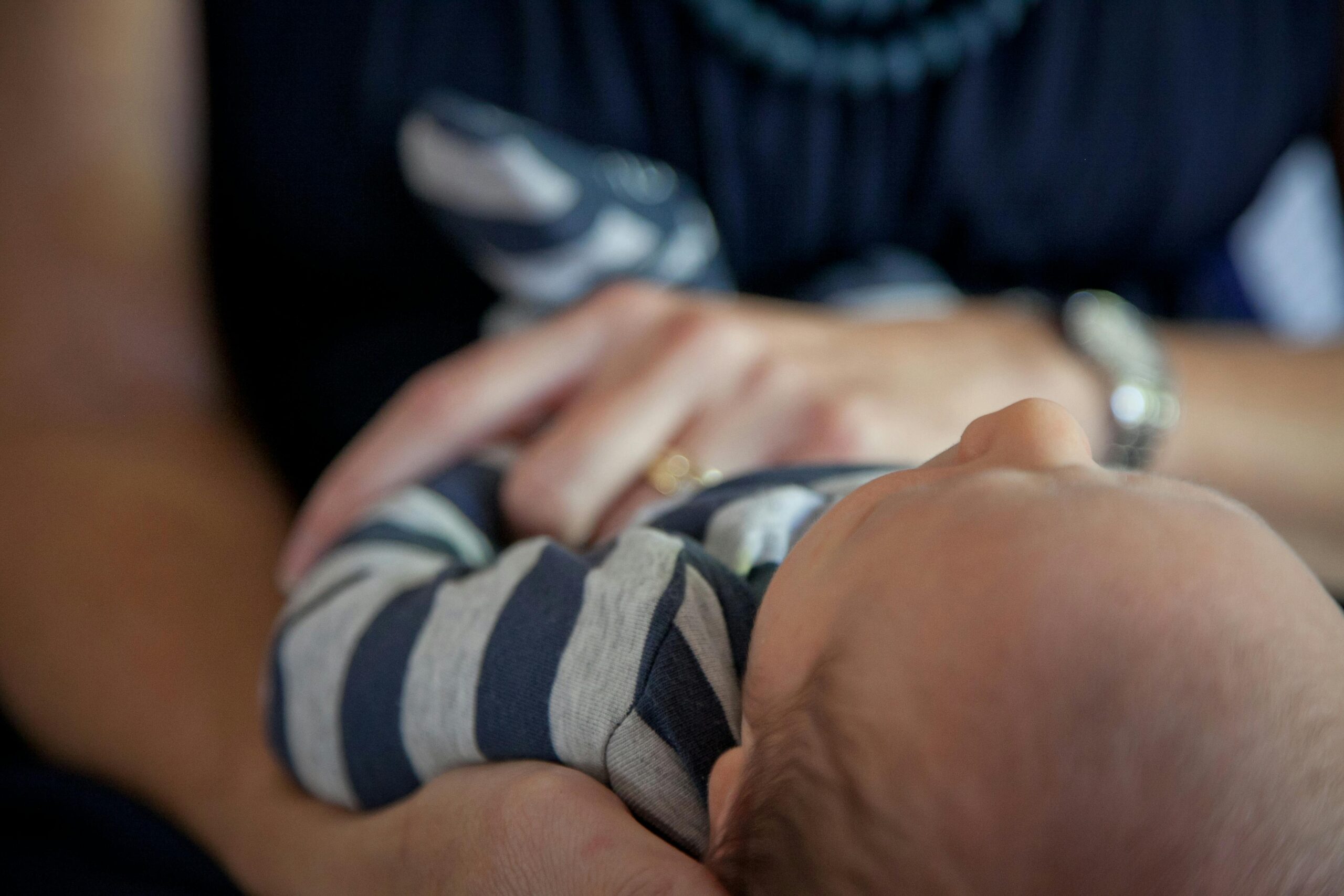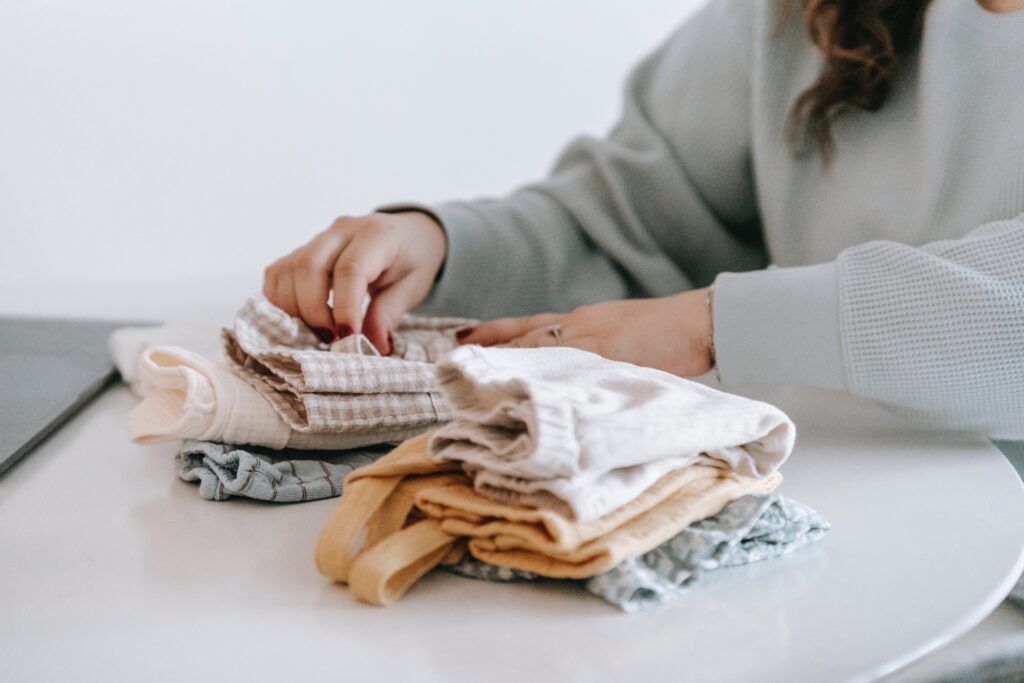
Bringing a baby into the world is one of the most transformative experiences in a woman’s life. Yet, while so much focus is placed on pregnancy and childbirth, the postpartum period is often overlooked. As a nurse and a mom, I know firsthand that new moms need more support, both physically and emotionally. Postpartum wellness isn’t about bouncing back quickly—it’s about healing, adjusting, and thriving. This guide will cover everything from physical recovery to mental health, self-care, and the power of building a strong support system.
Understanding Postpartum Recovery
Physical Healing
Your body has just done something extraordinary, and it needs time to recover. Common postpartum challenges include uterine contractions, bleeding (lochia) for up to six weeks, and perineal soreness if you had a vaginal birth, which can be eased with ice packs and sitz baths. C-section recovery requires careful wound care and avoiding heavy lifting. And be sure to keep up on your pain medication for the first couple days as movement is painful. Breast engorgement and nipple pain are common for breastfeeding moms, while constipation and hemorrhoids can be managed with fiber-rich foods and hydration.
Emotional and Mental Health
Beyond physical healing, your emotional well-being is just as crucial. Many moms experience baby blues—mood swings, weepiness, and anxiety within the first two weeks. Postpartum depression (PPD) lasts longer and affects daily life, while postpartum anxiety (PPA) can lead to excessive worry and racing thoughts. If you feel overwhelmed, seek help from a doctor or mental health professional. There is no shame in getting support.
The Vital Role of Mental Health in Postpartum Recovery
Recognizing Mental Health Challenges
Postpartum mood disorders are real and common. Signs include persistent sadness, loss of interest in activities, difficulty bonding with your baby, extreme fatigue despite being unable to sleep, and feeling anxious or overwhelmed.
Strategies for Mental Well-being
Caring for yourself is essential. Prioritize sleep, eat nourishing foods, take breaks, and ask for help when needed. Mindfulness, deep breathing exercises, and staying connected with loved ones can help. Another thing that I share with my patients is to get outside every day whether it’s going for a walk, just to breathe in fresh air, or even to get out on a little shopping adventure. If symptoms persist, therapy or medication may be necessary. Seeking help does not make you a bad mother—it makes you a strong one.

Building a Supportive Community
The Importance of Social Support
Motherhood can feel isolating, but surrounding yourself with a support system reduces loneliness, provides emotional reassurance, encourages open conversations, and helps you access valuable resources and advice. This could be family if they live local, friends, or new mom friends from a local mom’s group.
Finding and Engaging with Support Networks
Consider joining mom groups (local meetups or online communities), parenting classes, or forums like Postpartum Support International. Trusted friends and family can also be invaluable sources of support.
Involving Family and Friends
Be clear about what you need, whether it’s a meal, a helping hand, or a break. Don’t be afraid to ask for help. When someone comes to visit ask them to do a small task for you, in an ideal world visitors would come in and mother the new mama by cooking, cleaning, and helping her to get time to care for herself. It’s not all about the new baby. There’s a new mama here too. Set boundaries with those who may not respect your parenting style and encourage your partner’s involvement to share responsibilities.

Practical Tips for Postpartum Wellness
Physical Self-care: Prioritizing Your Healing Body
Your body has just done something incredible—whether you delivered vaginally or via C-section, it has been through a physically demanding experience. Recovery takes time, and prioritizing your physical self-care is essential for a smoother postpartum journey.
Prioritize Rest and Sleep
While getting a full night’s sleep with a newborn may seem impossible, rest is one of the most important aspects of postpartum recovery. Sleep deprivation can slow down healing, weaken your immune system, and negatively impact your mental health. Try these strategies to get as much rest as possible:
- Nap when the baby naps – It’s an old saying, but it’s true. Even short naps can be restorative.
- Share nighttime duties – If you have a partner, trade off nighttime feedings or use pumped milk/formula so you can get a longer stretch of sleep.
- Limit visitors – While family and friends may be eager to meet the baby, set boundaries to ensure you have enough downtime to rest.
- Accept help – Whether it’s someone bringing you a meal or watching the baby while you take a quick nap, let people assist you.
Hydration and Nutrition for Recovery
Proper nutrition and hydration play a huge role in postpartum recovery. Your body is healing from childbirth, and if you’re breastfeeding, your nutritional needs are even greater.
- Drink plenty of water – Hydration supports tissue healing, helps prevent constipation, and aids in milk production.
- Eat nutrient-dense foods – Focus on whole foods rich in protein, healthy fats, and fiber to help replenish your body. Some postpartum-friendly options include:
- Lean proteins (chicken, eggs, fish, tofu) for muscle repair
- Healthy fats (avocados, nuts, olive oil) to support hormone balance
- Fiber-rich foods (vegetables, whole grains, legumes) to ease digestion
- Consider postpartum supplements – Continue taking prenatal vitamins, and ask your provider if you need additional supplements like iron (for blood loss), magnesium (for muscle recovery), or omega-3s (for brain health).
Pelvic Floor and Core Strengthening
Pregnancy and childbirth can weaken your pelvic floor muscles, leading to issues like urinary incontinence, lower back pain, and pelvic discomfort. Incorporating gentle movements and exercises can help rebuild strength over time.
- Pelvic tilts and gentle Kegels – Engage your pelvic floor by tightening and relaxing these muscles throughout the day.
- Diaphragmatic breathing – Deep belly breathing helps activate your core muscles and promote healing.
- Gradual reintroduction of movement – Avoid intense exercise too soon; instead, focus on walking and gentle stretching. If you had a C-section, consult your doctor before starting any core exercises.
- See a pelvic floor therapist – If you’re experiencing pain, leaking, or pressure, a specialist can guide you through a proper recovery plan.
Perineal and C-section Incision Care
Depending on your delivery method, your postpartum recovery may involve special wound care.
- For vaginal births:
- Use a peri bottle with warm water when urinating to prevent stinging.
- Apply ice packs or cooling pads to ease swelling.
- Take sitz baths with warm water and Epsom salts to soothe discomfort.
- Use witch hazel pads or healing sprays for additional relief.
- For C-section births:
- Keep your incision clean and dry to prevent infection. Wash your hands before touching your incision.
- Avoid heavy lifting and strenuous activity to allow proper healing.
- Watch for signs of infection, such as redness, swelling, or unusual discharge.
- Support your abdomen when sneezing or coughing to reduce strain.
Gentle Movement and Postpartum Exercise
Exercise can help improve circulation, reduce stress, and boost your energy levels. However, your postpartum body needs time to recover before diving into intense workouts.
- Start with light walks – Walking is one of the best low-impact ways to promote circulation and help with postpartum swelling.
- Postpartum yoga or stretching – Gentle movements can help realign your body and ease tension.
- Gradual return to workouts – Wait for your six-week checkup before resuming more strenuous activity, and always listen to your body.
Personal Hygiene and Comfort
Postpartum recovery often comes with challenges like night sweats, extra bleeding, and sensitivity. Small self-care habits can make a big difference.
- Stock up on comfortable clothing – Loose, breathable fabrics help you stay cool and comfortable.
- Change pads and undergarments frequently – Keeping your perineal area clean reduces the risk of infection.
- Use nipple cream if breastfeeding – Sore nipples are common, and a lanolin-based or organic nipple balm can provide relief.
Taking care of your body postpartum isn’t just about bouncing back—it’s about supporting your healing, regaining strength, and feeling good in this new stage of motherhood. Be patient with yourself, and remember that every small step toward self-care is a victory.
Emotional Self-care
Mental well-being matters just as much as physical health, yet it is often overlooked in the postpartum period. The emotional demands of caring for a newborn, combined with sleep deprivation and hormonal changes, can feel overwhelming. Making time for yourself, even in small ways, is essential for maintaining balance. Whether it’s taking a few quiet minutes to enjoy a cup of tea, listening to music, or engaging in a hobby, prioritizing moments of self-care can help reduce stress and improve your mood. Journaling your thoughts can also be a powerful tool for processing emotions, tracking your progress, and identifying patterns in your feelings. Writing down your experiences—both the joys and the challenges—can bring clarity, release built-up stress, and provide a sense of accomplishment as you reflect on your journey.
Practicing gratitude is another simple yet effective way to shift your mindset and enhance emotional resilience. By focusing on small moments of joy—your baby’s first smile, a kind gesture from a loved one, or even just a moment of peace—you can cultivate a more positive perspective. Lowering expectations for household tasks is also crucial during this time. It’s easy to feel pressured to maintain a perfectly clean home or stay on top of daily responsibilities, but giving yourself grace and recognizing that your priority is healing and bonding with your baby can help alleviate unnecessary stress. Accepting help from family and friends, delegating tasks, and letting go of perfectionism will not only ease your mental load but also create a healthier and more enjoyable postpartum experience.
Seeking Professional Support
Don’t hesitate to seek help. Schedule postpartum check-ups, consult a lactation specialist if needed, talk to a therapist if you feel emotionally drained, and consider postpartum fitness or wellness classes to regain strength safely.
Conclusion
Your postpartum wellness is just as important as your baby’s health. By prioritizing physical healing, mental well-being, and community support, you set yourself up for a healthier, happier postpartum experience. Be kind to yourself, ask for help, and remember—you are doing an incredible job.
Additional Resources
- Postpartum Support International: postpartum.net
- Recommended Reading: The Fourth Trimester by Kimberly Ann Johnson
- Online Support Groups and Local Mom Meetups
Your well-being matters, mama. Take it one day at a time. ❤️
Medical Disclaimer
This article is for informational purposes only and is not intended to replace professional medical advice, diagnosis, or treatment. Always seek the advice of your physician, obstetrician, or other qualified healthcare provider with any questions you may have regarding your postpartum recovery, mental health, or any medical condition. Never disregard professional medical advice or delay seeking it because of something you have read in this article. If you experience severe physical symptoms, persistent emotional distress, or signs of postpartum depression, contact a healthcare professional immediately.
Photo credits: Pexel.com


